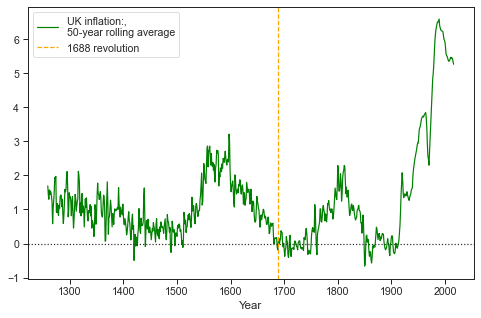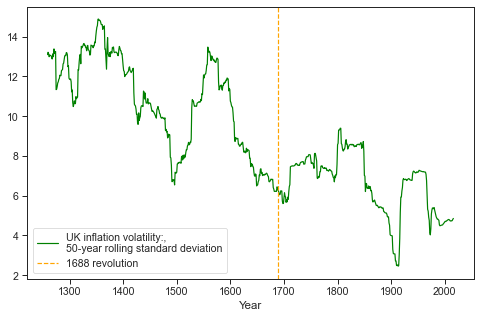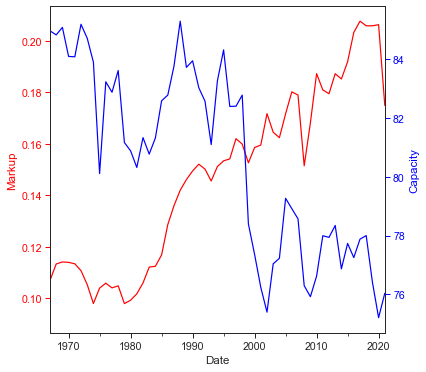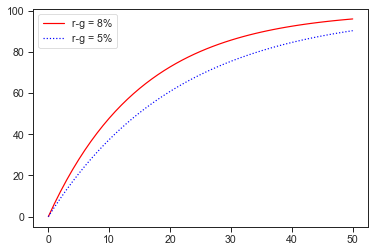Forum Replies Created
-
AuthorReplies
-
August 16, 2022 at 12:51 pm in reply to: Balance of Trade, Non-US Power Indexes, & the Amalgamation-Stagflation Cycle #248167
Hi Toukichi,
For now, forget the need to have advanced math and stats. This type of curiosity is always welcome, especially since a lot of us (including myself) learned as we went.
Three quick comments:
(1) According to BN, the power index has a dialectical opposite: systemic fear. Power can be increased through stagflation, but a high level of the power index might be where future stagflation is socially risky. The future can be bright for capitalists when power is low, because there are open roads for sabotage. BN also think about this limit with the concept of the asymptote of power.
(2) Looking at imports is an interesting idea! Blair and I have not planned next steps in our analysis of power indices around the world, but looking at imports could be checked. We are happy to credit you or support your research with credit. If you are interested, let’s talk — keeping in mind that our power-index research has been moving slowly over the summer.
(3) Here is Blair and mine’s first step in covering as many countries as possible.
Added to my above list:
Parallax View, The; Alan J. Pakula; 1974; 102
Investigation of a Citizen Above Suspicion; Elio Petri; 1970; 115
Touki Bouki; Djibril Diop Mambéty; 1973; 95
Canoa: A Shameful Memory; Felipe Cazals; 1976; 115
Parasite; Bong Joon-ho; 2019; 132
Memories of Murder; Bong Joon-ho; 2003; 131Hi Rowan,
I merged it with the current thread on movies.
My current streaming setup is Criterion Channel and Kanopy. Kanopy is free with a library subscription, including public libraries. YouTube certainly has some gems. MOSFILM’s channel has recently uploaded a lot of Soviet-era films for free, likely in the attempt to get someone, somewhere out there, to consume Russian art in 2022.
Justification for piracy is a twisted web of morals, which we can theorize and debate, and sales data, the details which we need are hidden. The MPA often presents astronomical numbers to estimate the economic effects of piracy, but they also don’t provide the data to debunk their claims.
Distributors are anti-piracy on principle, and I do not know of a studio that has accepted any argument that free access to content can written down as promotion for other content (back in the Napster days I remember the big counter-argument being that music piracy raises music sales).
Does piracy hurt artists or the “right” people we want to support? In the age of streaming, residuals are slim, so a lot of actors, writers and producers are not seeing any more dollars after their production fee. I’m not sure this makes piracy a clear-cut thing. I personally think films, much like science and literature, should be free to all, but I can’t ignore that, under capitalism, artists are fighting for more control over their art and their income.
Colin, if you are still hanging around the forum: Congrats on the dissertation, and I am looking forward to reading it.
Conceptual divides in an economic theory can be messy in reality — so I feel the pain of working hard to make a clear separation between “pre-” and “post-“. This is a completely naive question: are we biased to imagine that only modern money cannot be a store of value? Cycles of inflation and deflation can (a) be volatile and (b) big enough that generations of people are in one wave of inflation.
If pre-modern money was a store of (precious metal) value, how should we interpret the high volatility of inflation in previous centuries? Are these reflections of volatility in the production of sterling and gold?

 February 7, 2022 at 2:14 pm in reply to: Correlation between capacity utilization and markup #247749
February 7, 2022 at 2:14 pm in reply to: Correlation between capacity utilization and markup #247749Chris,
This is a creative approach to thinking about sabotage, or at least a measurable proxy of it. Curiously I made this for Capacity Utilization: Manufacturing: Non-Durable Goods: Food, Beverage, and Tobacco (NAICS = 311,2):

A word of warning to filtering by NAICS. The codes work by digit, rather than by number. Thus, the codes in bold are in the same higher-order classification:
311
311
511
611
3111
31111
31112If you sort NAICS by number, you can see where it is hard to group everything together. I know of an easy Python fix, so let me know if you need help.
- This reply was modified 3 years, 5 months ago by jmc.
As this thread in bumping up, I do want to echo this. Selenium is powerful. You can do all sorts of actions, including scrolling up and down a dynamic table.
Thanks, Beth. The codes are ISO3-Alpha format.
I’m with Chris; this sounds awesome. For a good comparison, 1970s American sci-fi before Star Wars is filled with wild ideas and radical political themes. Unfortunately, they are not always great as cinema.
Death Race 2000
Rollerball
A Boy and His Dog
Westworld
The Crazies
The conversation between Scot, Michael and Jonathan has become its own thread, https://capitalaspower.com/casp-forum/topic/casp_finance_only_finance/
- This reply was modified 3 years, 6 months ago by jmc.
Bulgakov, Mikhail Afanas evich. 1968. The Heart of a Dog. Translated with an introduction by Michael Glenny. 1st ed. New York: Harcourt Brace & Wolff.
Just finished this. It’s short but packs a punch! I still have a personal preference for Master and Margarita, but Heart of a Dog is also giving a magical picture of a society mid-fever.
Max: your reference to my work is very nice, thank you. To let people compare my work to the Jacobin article, I would recommend:
Is Hollywood a Risky Business? A Political Economic Analysis of Risk and Creativity
Risk and Capitalist Power: Conceptual Tools for Studying the Political Economy of Hollywood
From Power over Creation to the Power of Creation: Cornelius Castoriadis on Democratic Cultural Creation and the Case of HollywoodMy book is being published in 2022. I believe that it will be my most thorough presentation of the links between risk, power and creativity.
My research had led me to believe that Hollywood does in fact sabotage creativity for the purposes of risk reduction. However, I also understand why Pieter is right to be skeptical. There is certainly no smoking gun, and any film requires some creativity. My go-to description is this: Hollywood needs to control creativity but it certainly does not want to suffocate it completely.
There are a few things Scot and Pieter are debating. Give me a few days and I can jump in, if you don’t mind. For now, I want to comment on what I think is actually common to both sides of this debate: claims about the function of films in Hollywood economics. In my research I learned (sometimes painfully) that neoclassical assumptions hide in the cracks and crevices when it comes to talking about the business of Hollywood. Not every assumption is problematic per se, but the breaking of politics-economics dualism has effects on how we think of efficiency, consumer demand and the value of creativity.
- This reply was modified 3 years, 6 months ago by jmc. Reason: edited the last paragraph
I spent all day today typing up a response to this post, gathering information from various sources, and fleshing out my ideas… and when I went to submit… everything just disappeared.
Apologies for the frustrating bug. A lot of work was done to get the forum working the way it does. A future step will include improving the user experience of drafting posts. As you found out, the text box will not remember what you wrote, so any small error will erase hard work.
Just finished Dostoevsky’s Crime and Punishment. It was about crime, and the punishment of crime. It was also about Russia.
Next on my list is Olga Tokarczuk’s Drive Your Plow Over the Bones of the Dead. English translations of her work have been appearing in the past few years. The title of the book and many chapters draw from Blake’s “Proverbs of Hell”.
December 8, 2021 at 3:51 pm in reply to: Is “Hype” Really an Elementary Particle of Capitalization? #247309Modern Finance has essentially introduced the institutional and systemic biases of dominant capital into how we understand Finance, capital, and the world, generally. In this sense, “hype” is a vector, not a scalar, and it is universal and not limited to the ritual of capitalization. The biases of dominant capital have both a magnitude and a direction, but the term “hype” implies ideas like “herd mentality” and “mania,” which obscure the real problem and prevent us from identifying capital’s biases, let alone measuring their magnitude or direction.
I might be misreading this, but is the relevance of hype dependent on whether it is only a ritual internal to a dominant group of capitalists?
If dominant capitalists can differentially accummulate by stirring up herd mentality with such tactics as overly-optimistic earnings expectations, I might misunderstand the concern with hype being employable by any and all. If the root of hype is social-psychological, the ability to oversell with optimism or downplay with pessimism is universal — and certainly has a social origin before the Italian Renaissance and the bourgs. Yet, power is the root of a dominant class scaling the effects of hype, much in the same way that risk is not an exclusive concern of dominant capital.
-
AuthorReplies

